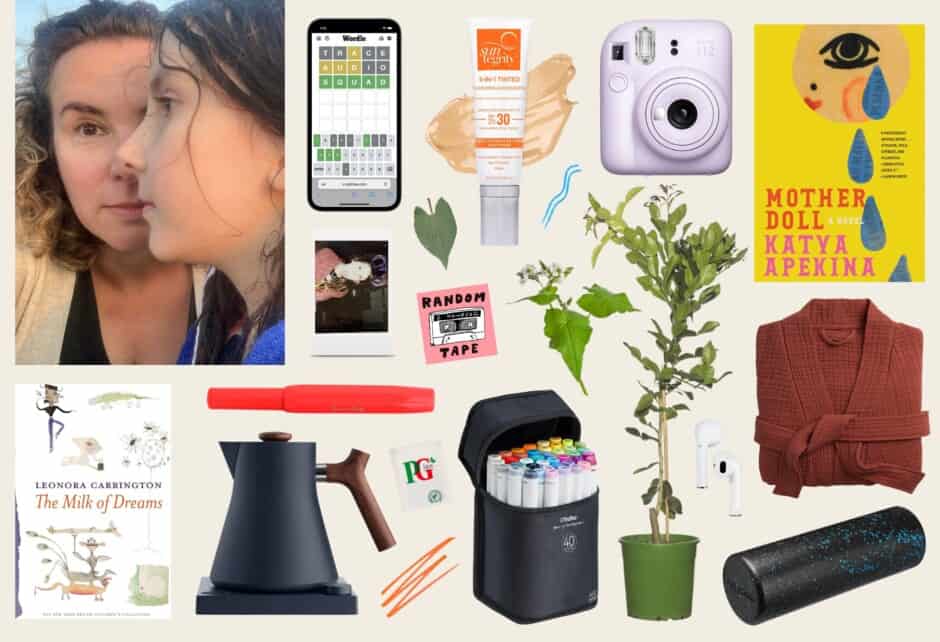
Teaching Children Empathy: A Guide For Every Age
Written by Sara Langer
Photography by KAREN MORDECHAI, PHOTOGRAPHED BY MAIA HARMS
There are many things we all want to teach our children. And empathy is surely near the top of the list. Especially in today’s complicated and sometimes cruel world, parents are concerned about raising children who deeply care for and understand the feelings of other people. To find out some tips on teaching children empathy, no matter if they are 2-years-old or 18, we tapped “empathy expert” and prolific author Dr. Michele Borba, to discuss the advice she shares in her latest book, UnSelfie: Why Empathetic Kids Succeed in Our All-About-Me World.
In the process of writing UnSelfie, Borba traveled the globe (she hit 6 of the 7 continents) in search of answers on cultivating empathy, what causes inhumanity, and how we can stop inhumane behavior. According to Dr. Borba, “empathetic children use nine essential habits to help them navigate the emotional minefields and ethical challenges they will inevitably face throughout life.” The book is backed with extensive research and provides concrete and hands-on ideas on how to develop empathy in young children, practice empathy with older children and teens, and eventually live empathetically as a young adult and into the rest of one’s life.
One issue Dr. Borba tackles in the book is the “selfie syndrome” she says is taking over today’s youth. “The condition is all about self-promotion, personal branding, and self-interest at the exclusion of others’ feelings, needs, and concerns,” she explains. “It’s permeating our culture and slowly eroding children’s character.” She says that there is a measurable dip in empathy among today’s youth as well as an increase in peer cruelty and cheating, and an overall weaker moral reasoning. And while children are hard-wired to care, we are not born empathetic, it is something we must learn through example. Once we do learn empathy, however, the benefits are plentiful. “Empathy can affect future health, wealth, authentic happiness, relationship satisfaction, and the ability to bounce back from adversity,” says Borba. “It promotes kindness, prosocial behaviors, and moral courage, and it is an effective antidote to bullying, aggression, prejudice, and racism.”
Below, nine takeaways from our chat with Borba on how to cultivate empathy within your family.
Be A Role Model
The most effective, important, and natural way to cultivate empathy in your children is to model it. Be mindful of your language and your actions. Dr. Borba recommends that parents do a “self-tune-up.” Check in with yourself first. All of the strategies you use with your children can and should be applied to yourself. Children must see empathy in action to learn how to be empathetic themselves.
Learn The Emotional ABC’s
“Children need to learn their ‘Emotional ABC’s’ or what is known as Emotional Literacy: being able to look at someone and read their emotions,” says Borba. “Once you can read the emotions, you are more likely to be able to step in and empathize with someone, because you can say to yourself, ‘I feel with her.’ Today’s digitally driven kids are looking down, they are not looking up, so they may not be seeing emotions out in the real world. We need to talk about our emotions with our children. Talk about the way you’re feeling and explain why you may be feeling that way. Use characters in movies or books to create examples. Ask them questions. ‘How do you think they felt when…?’ Or, ‘Look at her slumping her shoulders and looking at her feet, how do you think she’s feeling?’ Have your children listen to people’s voices. Help them recognize when someone may be tired, sad, or angry. And a great household rule to adopt is always looking at the color of the eyes of the person you are talking to. It forces your child to look up, which is strong body language, but they can also start to read the emotions off of someone’s face.”
Create a Family Mantra
Developing “Moral Identity,” or ethical code, is the second habit Dr. Borba outlines in her book. Fostering a child’s moral identity can be complex in today’s world, but Dr. Borba provides many examples and strategies for how to help your children and your family create a moral code. One of those ways is by creating a family mantra. “Children need a moral code. Kids act how they see themselves to be,” she says. “Create a family code and stick to it. It doesn’t make a difference what you stand for, but it’s important to stand for something. Take a moment with your children to create a family mantra around caring for or helping others. The more you say it, you will become it.”
Point Out Good Character and Behavior
“Look for moments when your child is kind, caring, responsible, or respectful and point it out. You can say ‘That was respectful, because…’ and ‘We value that in our house, thank you.’ And you should point out the not-so-good behavior, too. You can say, ‘That wasn’t kind and that is not ok in our family.’ Then you can ask, ‘How would you feel if that happened to you?’ ‘What do you think that person needs in order to feel better?’ and ‘What can you do about it?’ The formula is asking feelings plus needs. You start by asking, ‘How would you feel?’ and later on you can ask, ‘How do you think he feels, what does he need?’ Your child will start to ask himself that in his head, as he’s reading a book, watching a movie, or interacting with a friend. It will help your child learn to think about other people’s values and perspectives and step into their shoes.”
Use Stories to Develop Moral Imagination
Reading, and even watching certain movies, are excellent ways to cultivate empathy. “Books can transport children to other worlds and transform their hearts. And it’s a rare parent who doesn’t believe that reading is crucial for their children’s success, and widespread data supports those views,” says Borba. While reading is one of the keys to academic success, it will not only make your children smarter, it can also make them kinder. Read together, ask questions about the characters, specifically their feelings, and encourage your children to ask questions, too. Dr. Borba suggests reading books that focus on character development, rather than a book that is plot-driven. Make sure you are not only reading with your child, but they see you reading for pleasure, too. And as they get older, listening to audiobooks together in the car or at home is a great way to share literature. For suggestions on books and movies to start with, check out Borba’s 50 Books for Kids and Teens That Develop Empathy list, as well as her list of 100 Movies for Kids 5-to-17 That Teach 9 Crucial Empathy Habits.
Practice Mindfulness
“Science shows that practicing mindfulness, even minutes a day for a few weeks, can reap such positive benefits as boosting immune systems, reducing stress, increasing resilience, enhancing focus, stretching attention, and improving memory,” explains Borba. “But mindfulness can also nurture empathy and compassion as well as increase children’s willingness to help others.” Mindfulness is directly tied to self-regulation, which is one of Borba’s nine habits. Practicing mindfulness can be as simple as slowing down and listening to your breath, breathing in and out with control. Creating a quiet and calm environment and sitting in silence is another simple way to cultivate mindfulness. Experiencing nature or taking a walk can also aid in creating mindfulness, too. It’s all about slowing down, paying attention to your breath, and clearing your mind.
Watch the “Good News”
“Many children are developing compassion fatigue. They are seeing such gory, horrific news, and so much of it. With so much exposure to bad news in the media, children can start to see the world as a bad and scary place and that takes your empathy down. And that goes for adults, too,” says Borba. “Seeing happier news will actually help increase empathy. We need to intentionally look for news outlets that share uplifting news. The Good News Network is a great resource, as is Kids are Heroes. Think about searching for a kid who did something wonderful today. It helps to see a real child as an example, taking action. When young kids are seeing so many graphic images and they can’t process or understand the news, they can believe the world is a scary and horrible place. When safety and trust levels go down, empathy goes down. While there are a lot of bad things happening in the world, we need to remember to show children the good news and images. And there are a lot of really wonderful things happening in our world, too. That’s an easy thing we’re often overlooking. When we see others doing good, we actually get a ‘helpers high.'”
Select a Summer Service Project
Hone in on your child’s interest and find a service project related to what they enjoy doing in order to practice empathy. Do it together as a family if you can. It could be teaching a young child soccer, making artwork for a local hospital, or volunteering in a soup kitchen. The most important part is that the service is done face-to-face. Human connection is at the heart of empathy. If your child can see the other person’s reaction, that is going to make them feel good and want to do it again. “Unfortunately, we are kind of a ‘getting world,'” says Borba. “What we get matters more, opposed to what we give. So, in the beginning, kids may want to return to a service project because they get a good feeling from it and that is ok. The hope is they will return again and again and the service aspect can be internalized.”
Take a Social Media Detox
“Social media can impact a child’s empathy either positively or negatively,” says Borba. “But the internet is going to be here to stay, it is part of our children’s lives. What parents need to do is step up to the plate to help digitally driven kids begin to see real world stuff. We do know damage can happen, and the longer children are plugged in, the more likely they are to be narcissistic, especially during those sensitive ‘tween years,’ when kids start worrying about how other people look, how many friends they have, who likes who, etc. The longer they are looking down (and plugged in) and not looking up and out into the real world, the lower their emotional literacy will be. Pay attention to how often your kid is plugged in and do make sure you are taking time to help your child get real-life connections, real face-to-face time.” Find a time in your home, when you can have in-person conversations or you can get out together as a family and disconnect for a while. Dr. Borba recommends both parents and kids take breaks from social media, both for short and extended periods of time.
Don’t Do it Once, Make it a Routine
“The best way to teach empathy is by modeling it. And our goal is for our children to internalize it, so they are empathetic without any nudging or without our awards,” says Borba. “First, they need to develop empathy. They need to see it and watch it being modeled. They need to hear and understand why. Second, they need to practice it. We are really good at practicing our math facts or our violin, but you need to continue to practice empathy. You can’t use these strategies just once. Find what works for your family and make it a routine. And then finally, your child can live it.”
For more on this topic, check out our piece on What Danish Parents Know About Teaching Empathy, How To Raise Kind Kids, and How To Raise Thankful Kids.
Share this story



